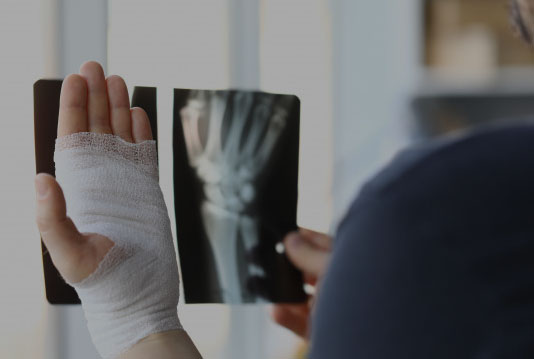Outpatient Joint Replacement
Total joint replacements performed on an outpatient basis are becoming more common. Depending on your overall health and other related factors, you may be eligible to have your hip, knee or shoulder replacement done as an outpatient. These may be performed at the hospital operating room or the outpatient surgery center
What is outpatient total joint replacement?
Outpatient total joint replacement is a regular joint replacement surgery but the patient goes home the same day. In the last few years, refined surgical techniques and pain management have allowed us to begin safely performing these surgeries without the customary overnight stay in the hospital. The COVID-19 pandemic accelerated the growing trend in outpatient joint replacement and we have ben able to begin sending the majority of our patients home the same day.
What are the advantages of outpatient total joint replacement?
Safety
- Hospitals care for many patients with infectious By keeping you out of the hospital, there is less chance of diseases spreading between patients.
- We have dedicated anesthesiologists who are used to working in an outpatient environment and use a combination of techniques to allow for pain relief and the ability to go home the same day.
- Not all patients qualify for outpatient procedures: the ones who do are healthier and at low risk for medical complications after surgery
- For several years we have been using the medication tranexamic acid (TXA) during surgery to reduce bleeding. Whereas it used to be very common to need a transfusion after surgery, they are rarely needed now.
Cost
- Outpatient surgery can cost much less than inpatient joint replacement, saving the patient and the insurance company money.
Comfort
- Recovery in your own home usually means better comfort in familiar surroundings. And our multimodal techniques allow you to better control your own pain management.
Who is eligible for outpatient total joint replacement?
Medial criteria for outpatient joint replacement include minimal or stable heart or lung issues, such as a recent heart attack or COPD. Patients with chronic kidney or liver disease may also require inpatient management.
You must also have good social support, with friends or family able to care for you at home. They must be strong and healthy enough to assist you in recovery.
If you meet those criteria, talk with your doctor to see if you’re eligible.
Frequently asked questions about outpatient total joint replacement
When do I go home on the day of surgery?
In order to go home, you must meet certain criteria. These are in addition to having stable vital signs and adequate oxygen levels:
- Get up and walk with assistance
- Go to the restroom
- Be free of nausea or vomiting and able to eat and drink easily
If I have a total knee replacement or total hip replacement, will I need to use a walker? How long will I need help to walk?
You will need a walker right after surgery. You may transition to a cane as your strength improves. This may be anywhere from one to six weeks after surgery. It may take several more weeks after that to be able to walk without the cane.
What happens if I’m still in a lot of pain when I go home?
The staff will make sure that you’re not in a lot of pain when you’re discharged on the day of surgery. We also use multimodal pain management to keep your pain controlled. Multimodal pain management means using several different ways to control pain instead of relying on one type of pain medication in addition to narcotics. Other drugs that may be prescribed include nerve medications or muscle relaxers and the use of ice packs or cooling machines.
Are the risks higher with outpatient joint replacement?
No, having an outpatient total joint replacement does not put you at a greater risk for complications. Studies using tens of thousands of patients from across multiple centers show that outpatient total joint replacements actually have lower rates of major than do inpatient total joint procedures.
Is COVID-19 making anything different?
Yes, we are taking multiple precautions due to COVID-19.
- Requiring all patients to take a COVID-19 test before their surgery date and rescheduling to a later date if you test positive.
- Screening all patients, visitors, employees, and visitors for symptoms of coronavirus or other respiratory illnesses, including screening for fever.
- Practicing social distancing as much as possible.
- Limiting the number of guests per surgery patient to one.
- Requiring masks for everyone within our facility.
- All of our physicians are fully vaccinated.
Surgeons Providing Outpatient Joint Replacements
Hip Replacement
Dr. Thomas Courtney
Dr. Steven Pancio
Dr. Richard Patterson
Anterior Approach Hip Replacement
Dr. Steven Pancio
Knee Replacement
Dr. Richard Patterson
Dr. Thomas Courtney
Dr Steven Pancio
Oxford Partial Knee Replacement
Dr. Steven Pancio
Dr. Richard Patterson
Dr. James Larson
Shoulder Replacement
Dr. James Larson
Dr. Stephen Pancio
Dr. Richard Patterson
Elbow, Wrist, and Hand Joint Replacements
Dr. Martin Baechler










